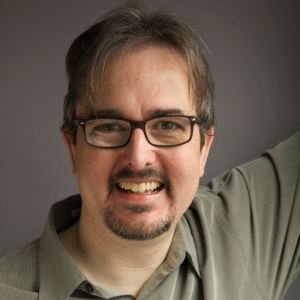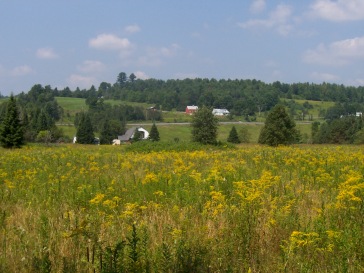 Scott Youmans knows his way around Right Livelihood, having left a lucrative career in the corporate world for the work of his heart, which turned out to be its own winding rock trip. He’s also a superb facilitator of helping others find not just their dream work, but how to make their present work richer with meaning and joy. Here’s an interview on his upcoming online class, “Making the Leap into the Work You Love,” which runs June 29 – August 9. Sign up before June 10 for the Summer Buzz sale and save 10%.
Scott Youmans knows his way around Right Livelihood, having left a lucrative career in the corporate world for the work of his heart, which turned out to be its own winding rock trip. He’s also a superb facilitator of helping others find not just their dream work, but how to make their present work richer with meaning and joy. Here’s an interview on his upcoming online class, “Making the Leap into the Work You Love,” which runs June 29 – August 9. Sign up before June 10 for the Summer Buzz sale and save 10%.
Caryn Mirriam-Goldberg: What in your life led you to design and develop this class?
Scott Youmans: Over a decade ago, when I facilitated the first incarnation of Making the Leap into Work You Love, I was in the midst of transitioning out of the corporate world and into something … unknown. I was about to complete my Individualized Master of Arts program at Goddard College with a concentration in Transformative Language Arts, and at the same time leaving my full-time job to start a web consulting business. The thoughts and emotions were swirling: fear and uncertainty, joy and curiosity. What would happen next? How would I make a living doing what I loved on this new path?
In the midst of all of this, the TLA Network had come into being, and we noticed that our members were interested in learning more about the practice of Right Livelihood, and in particular, many of us were asking, “how do I make a living doing what I love?” The Network began to consider how we might create space for practitioners to approach this question. Drawing from the whole of my life experiences, including experiential workshops and my own writing practice, certain threads––poems, exercises, videos––began to tie together to help guide me in exploring answers to this question. It was easy to see how these could serve others on the journey. After a little encouragement from the chair of the Network, I set about building this class to be part of an early Power of Words Conference. It has since become a recurring staple of the Network’s offerings.
CMG: What can people expect from this class?
 SY: At its heart, this class is a journey into one’s self. My hope is that it is a gift, a space for being and becoming, with a focus on career and right livelihood. Each week will have a primary focus and exercise, along with accompanying readings, videos, and activities. The participants will form a community around the course, offering feedback and support, and asking for support in return. The class will begin by examining each participant’s journey by looking at the choices and beliefs that brought us to this place and time. We’ll then begin crafting a vision, informed by our past, and rooted in our heart’s desires. The class will end with specific community-supported steps to advance our vision.
SY: At its heart, this class is a journey into one’s self. My hope is that it is a gift, a space for being and becoming, with a focus on career and right livelihood. Each week will have a primary focus and exercise, along with accompanying readings, videos, and activities. The participants will form a community around the course, offering feedback and support, and asking for support in return. The class will begin by examining each participant’s journey by looking at the choices and beliefs that brought us to this place and time. We’ll then begin crafting a vision, informed by our past, and rooted in our heart’s desires. The class will end with specific community-supported steps to advance our vision.
CMG: How does this focus on the leap into the work you love manifest in your own life, art and work over the years?
SY: That word, leap, has a certain ring to it in my mind. When I first left my job in the corporate world, I imagined myself leaping off of a spinning carousel. I had a belief that the carousel was built by someone else, that it was spinning too fast to see any other path, and that I had to stay on it for survival. Leaping off of the carousel meant leaving the security of a full time job with benefits, it meant leaving a career path that seemed inevitable.
Since leaping, both professionally and in offering this class, I think I’ve been able to hold onto the possibility of finding a way to be in the world that allows me to share my gifts in a healthy and fulfilling way. By holding on to this possibility, I haven’t really stopped leaping. I continue to find enjoyable ways of earning a living that meet my needs in that moment.
Not everyone has a job that they love. I know many people whose jobs merely facilitate their passions, whether it’s their family, a hobby, or a side business. In many cases, to fully leap into this other hobby or side business may not be healthy, but it may one day be sustainable. Often, these extracurricular professions provide the joy and satisfaction that can sustain someone through their workday worlds.
Primarily, this focus means that I keep the idea of “work I love” present in my heart. I use it both to seek the work that I love, and to make the work that I’m doing loveable, or worthy of love. How I show-up at work, the tone I set, the language I use, impacts both my job and the work environment of everyone around me. If I make my job one that I love, then perhaps those around me will be able to better love their jobs too.
One of the ways this focus has manifest in my life has been though my most recent job change and move. There was a time when I recognized that my current job wasn’t as healthy for me as I wanted it to be. For example, I worked alone at home and I missed having daily in-person connections with my co-workers. From this realization I began to imagine and to write about ways I could earn a living using all of my gifts. I created an elaborate plan––we’ll call it “Plan A”––to transition into Unitarian Universalist Ministry. It would take six years of part-time education along with internships and credentialing while I continued working. A year into this plan, I was laid off, disrupting everything and creating an immediate need for income. Now, I also had Plan B, which involved a degree and credentialing in the field of Marriage and Family Counseling, and Plan C, which was to work for a company where I could combine my technology skills and my spiritual path. The layoff forced me to look again for companies that matched Plan C, and this time, within a month I found a job with a company whose mission is to disseminate spiritual wisdom. No extra degree needed. No additional credentialing. From this experience, I learned to not overcomplicate things. Sometimes holding on to a vision means letting it go. You might just find that you get something better than you could have imagined.
Learn more about Scott’s upcoming class here, and consider registering by June 10 to save 10%.



 shifting eco-community of what David Abram calls the “more-than-human” species among us as continually showing me the way through the crazy losses and wild joys of this beautiful life.
shifting eco-community of what David Abram calls the “more-than-human” species among us as continually showing me the way through the crazy losses and wild joys of this beautiful life.